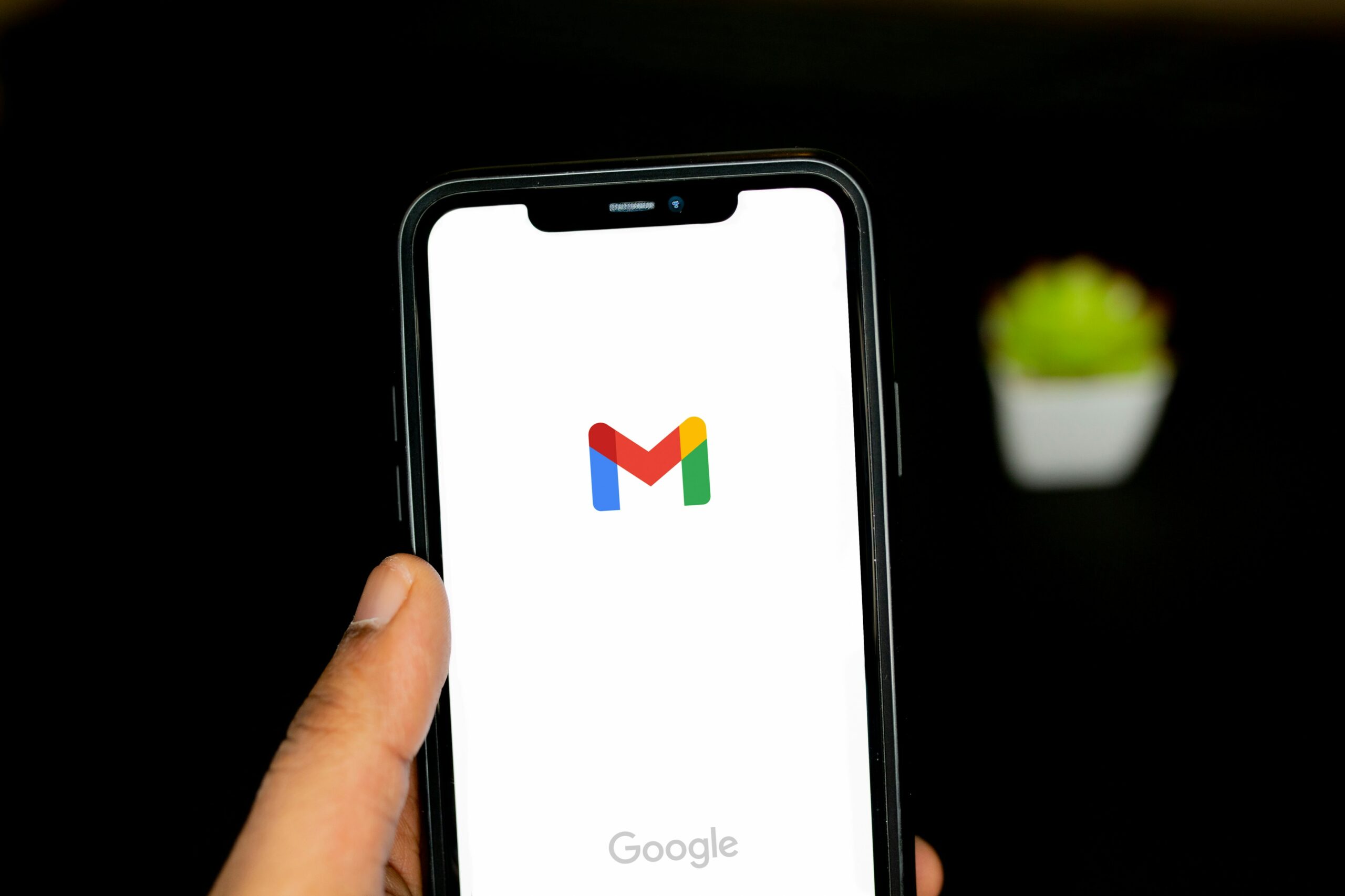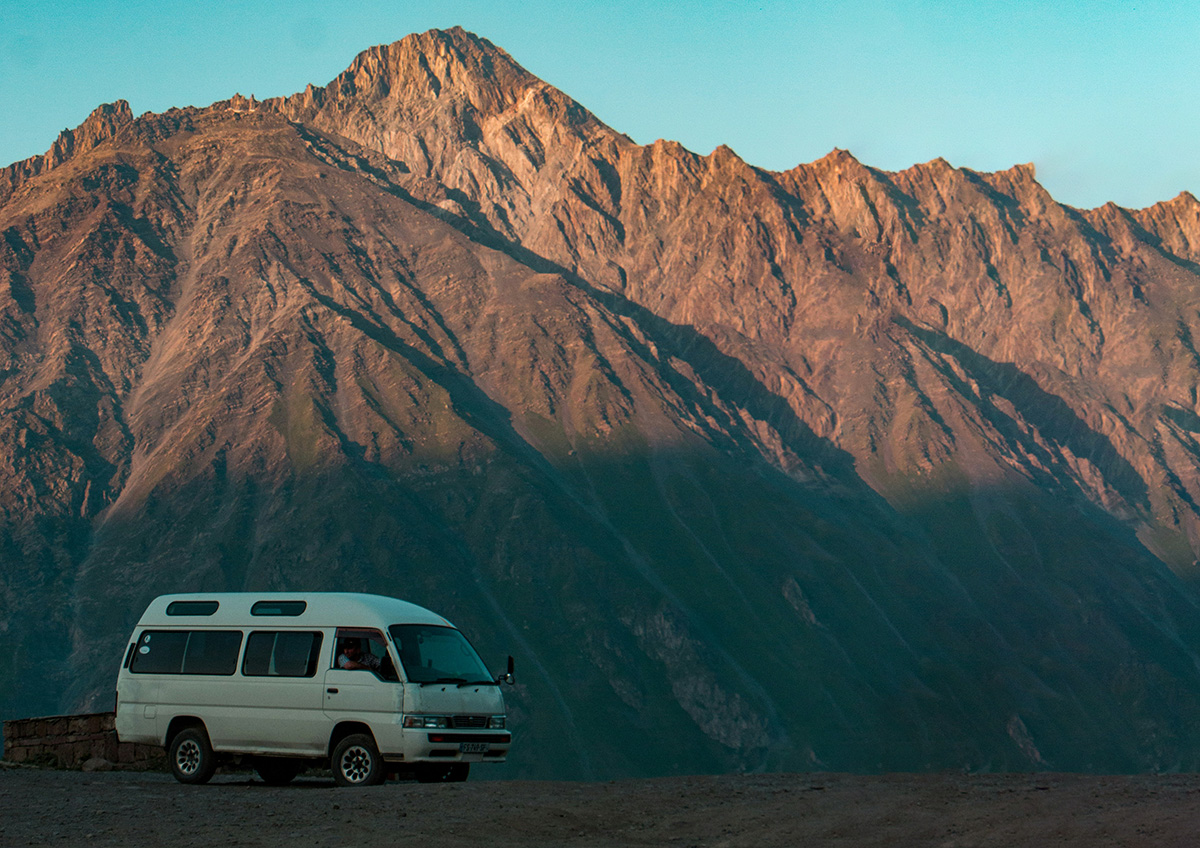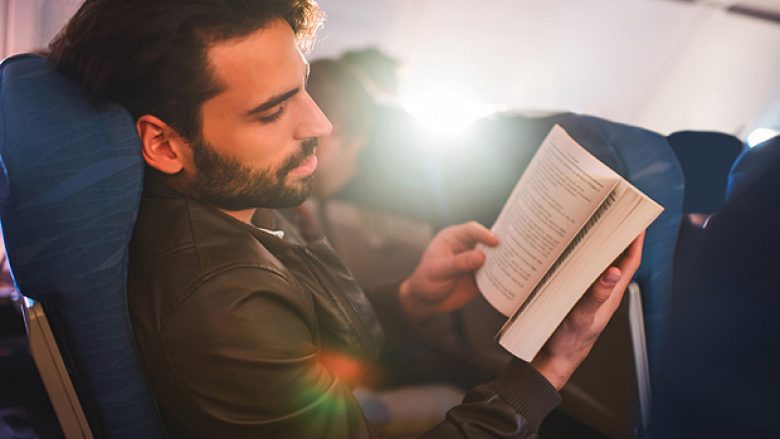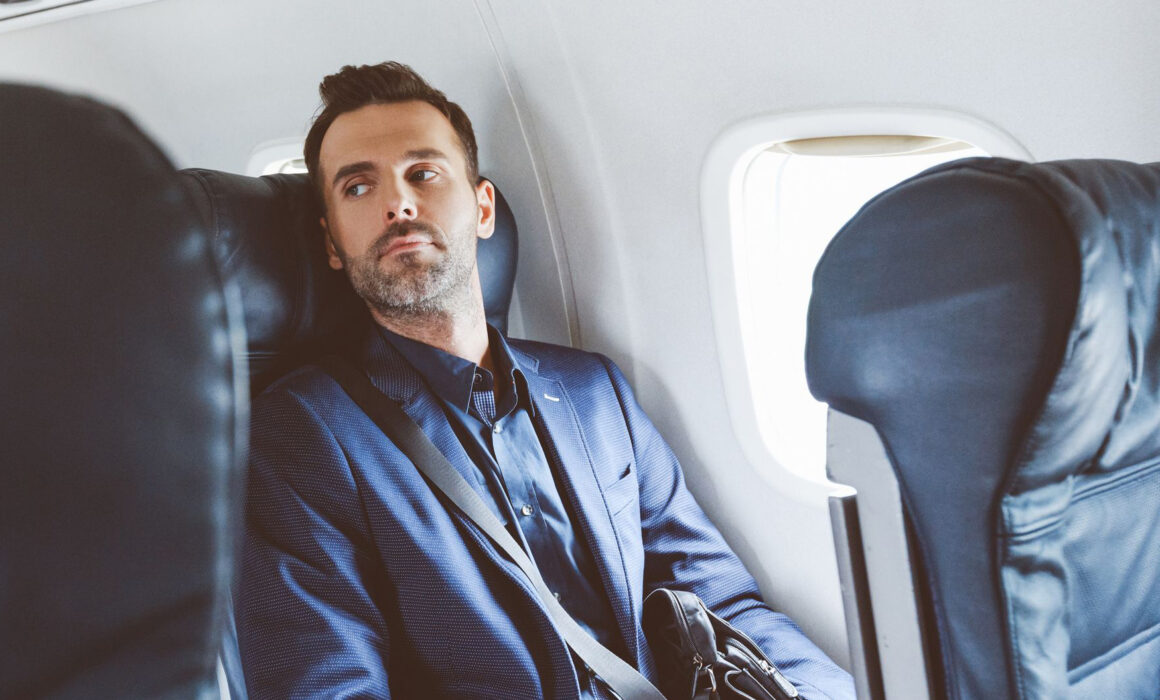How 10 Hours with No Wi-Fi Drove Me Crazy, then Set Me Free
GQ columnist Chris Black finds himself on a plane without Wi-Fi and begins to reconsider his long-term relationship with the internet. How extremely online do we really need to be? Many believe that what we do on the internet ties to our identity, and how productive we are. Black’s experience without the internet made us think: Do we need to balance our online and offline lives better? Are we relying too much on being connected all the time? Is this constant need to be online taking away from other important parts of our lives?
I love the internet. I have been using it as much as possible since I was in middle school and we got dial-up on our white Gateway PC. I wake up, and before coffee touches my lips, my laptop is cracked, and I am looking for information. It’s nonstop, from computer to phone and back again until I fall asleep. I have addiction issues, and for me, this one might be worse than Oxycontin, exercise, or even dessert.
The feeling of being disconnected causes me great anxiety. I will refresh a page incessantly and mindlessly, doing it repeatedly and rarely getting a different result. I have made myself believe it is a good thing. I am on top of my shit, responding to emails and texts with lightning speed. It’s a point of pride. I am always available.

Last week I went to Eastern Europe, to Tbilisi, the capital of Georgia. The first flight was from New York City to Paris, followed by a four-hour layover in the Air France lounge (new, pretty nice) and a five-hour flight to Tbilisi. The plane on the last leg had small, uncomfortable seats, no plugs for power, and no TVs. I finished an entire book while white noise played in my Air Pod Max. I was intensely focused and enjoying myself. I forgot how good it feels not to pay $20 for shitty plane Wi-Fi and simply focus on reading the words on the page.
On our second day in Tbilisi, we took a Mercedes Sprinter to Batumi, a town five hours away from the Black Sea. The drive was long and tedious, and our driver stopped to smoke a few cigarettes every hour. I didn’t have headphones, and most people in the Sprinter were hungover and not looking to chat. One guy from Germany was tethering, seemingly making deals and chatting on Slack for the entire ride, but my phone only had service intermittently. I was losing my fucking mind. I felt like a child whose parents had taken away the iPad. We arrived at the hotel in Batumi, and I rushed to my room, desperate for internet access (and a shower). We had a sunset cocktail on the roof and a dinner for 120 people in the hotel lobby. Most people stayed up late partying, but I retired around 11 p.m. to mentally prepare for the long drive back tomorrow.

I was dreading this trip. Set off at 10:30 a.m., and I sat in the front next to the driver, who was rolling calls like a CAA assistant for the entire ride. We dodged cows, stray dogs, and traveled mostly on roads in need of repair. I just stared out the window, run-down and tired — but I was focused on the world around me. I was barreling down a newly constructed highway in a foreign place I had never been before. No podcast or Netflix show to distract me. Instagram barely worked. Much to my surprise, it made the drive seem quicker.
I flew back to New York City on Sunday and although Wi-Fi was readily available I decided to forego it and try to just read or write. The experience pushed me to consider — shocking myself — that maybe Wi-Fi on the airplane isn’t necessary. This is a thing now; you can find people on TikTok boasting about “raw-dogging” (forgoing all entertainment and simply looking out the window or zoning in on the flight map) long flights with little or no stimulus and psycho mindset required to do it.

I can still remember taking AirTrain Airways from Atlanta to NYC in my early 20s. I would deplane and casually check my voicemail, which was never that urgent. I called people back, and the world continued spinning. A lot of us do our best and most creative work on the plane; it has something to do with the cabin pressure, recycled air, and the smell of disgusting food. So next time you board, let the other suckers pay for the garbage Wi-Fi; it’s one of the only places left where we can disconnect without distraction and still be productive.
In today’s digital age, going offline can be both exciting and challenging. Everything To Sea trips offer the perfect chance to unplug and reconnect with nature, each other, or yourself. What do you think about disconnecting? We’d love to hear from you!


Very spot on article. I tread the day when the person next to me is talking incessantly on the phone while flying. Even worst will be people receiving calls whilst flying and those incessant ring tones that people usually take eternity to answer because as they fumble for their phones.
Really telling, if the writer’s most “writable” experience was not having internet in a country as beautiful and fascinating as Georgia, called Saqartvelo by the people who live there.
I enjoyed my expierence on my trip with Everything to sea.
I only checked my messages at night when going to bed and I would post my pictures on IG and Facebook then.
During the day I didn’t use the internet or data. I only used my phone to take pictures.
I was more interested in connecting with my fellow passengers and crew and most of all nature.
Please just enjoy yout time with everyone on the boat.
I grew up without cell phones and the internet. So it’s easier for me to disconnect.
When I’m on a flight, I put my cell phone away. I put on my Bose Noise Reduction headset, read a book, sleep and relax. I don’t worry about Wi-Fi, or the internet while I’m flying.
When traveling, I only use my cell phone for calls or text messages, that’s all. Yes I carry my laptop computer with me, which I use when I’m at a hotel. But again I don’t spend much time worrying about messages or calls.
I used to fly on AirTran quite often. Especially during my Airline career when I was commuting back and forth between home and my crew base. I was very disappointed when AirTran merged with Southwest Airlines.